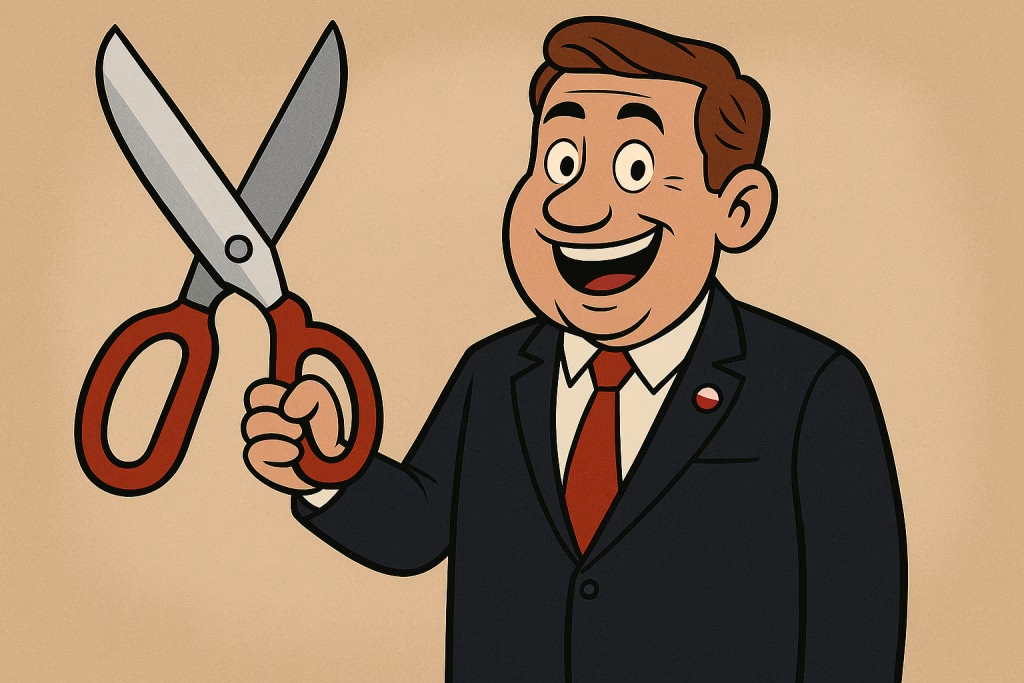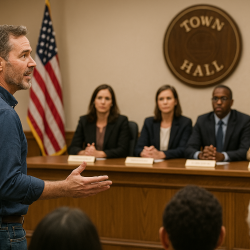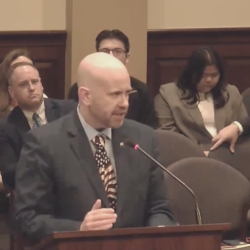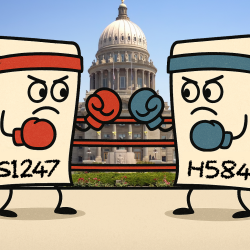Everyone knows the story of Galileo Galilei, right? A brave man of science was unfairly persecuted by a bigoted and intolerant Church that was deathly afraid of having its doctrines challenged.
At least that’s how it is taught by the secular humanists who write our history books.

The real story is much more complex. Galileo’s discourse was part of an ongoing debate within Europe about the nature of the world and the solar system. Galileo himself was correct about some things, and wrong about others. Yet rather than rigorously defending his hypotheses, he chose instead to ridicule his opponents, including Pope Urban VIII. The Church’s response was unsurprising.
Sometimes we are called upon to exhibit humility, even when we know that we are correct. If a police officer writes you a speeding ticket you didn’t deserve, arguing with him will not change anything.
On the other hand, sometimes we need the courage to step up and be unmoved. Martin Luther was a Saxon priest who, like Galileo, found himself at odds with Church authorities. He had posted 95 points of contention with Church doctrine on the doors of a Wittenberg church hoping to start a debate, but he soon found himself facing the Holy Roman Emperor with his life at stake.

Unlike Galileo, Luther did not ridicule his opponents, rather he simply stood firm on his convictions. “My conscience is captive to the Word of God. Thus I cannot and will not recant, because acting against one’s conscience is neither safe nor sound. Here I stand; I can do no other. God help me.”
Luther escaped execution only because another German nobleman offered him protection. His words inspired the Protestant Reformation, which, no matter which side you’re on, changed the world.
How do we know when to be humble and when to stand defiant?
We must pick our battles and always keep the big picture in mind. As tempting as it is to try and ownthe other side in every interaction, we must remember why we do what we do.
The Apostle Paul was never afraid of standing up for what was right. From the time of his conversion until his death, he boldly proclaimed the Gospel of Christ. He boldly preached Christ to his fellow Jews, pagan Greeks, and officials of the Roman Empire, never backing down even when his life was on the line.
There was a moment, however, when he realized the need for humility. When he was on trial before the Jewish Sanhedrin in Jerusalem, he found himself literally slapped in the face, and reacted as most any of us would:
And looking intently at the council, Paul said, “Brothers, I have lived my life before God in all good conscience up to this day.” And the high priest Ananias commanded those who stood by him to strike him on the mouth. Then Paul said to him, “God is going to strike you, you whitewashed wall! Are you sitting to judge me according to the law, and yet contrary to the law you order me to be struck?” Those who stood by said, “Would you revile God’s high priest?” And Paul said, “I did not know, brothers, that he was the high priest, for it is written, ‘You shall not speak evil of a ruler of your people.’”
Acts 23:1-5

Both courage and humility are necessary in this world. We must stand up for what was right, but never let ourselves become too prideful in doing so. None of us are greater than our missions. Like the singer said, you’ve got to know when to hold ‘em and know when to fold ‘em.
About Brian Almon
Brian Almon is the Editor of the Gem State Chronicle. He also serves as Chairman of the District 14 Republican Party and is a trustee of the Eagle Public Library Board. He lives with his wife and five children in Eagle.












